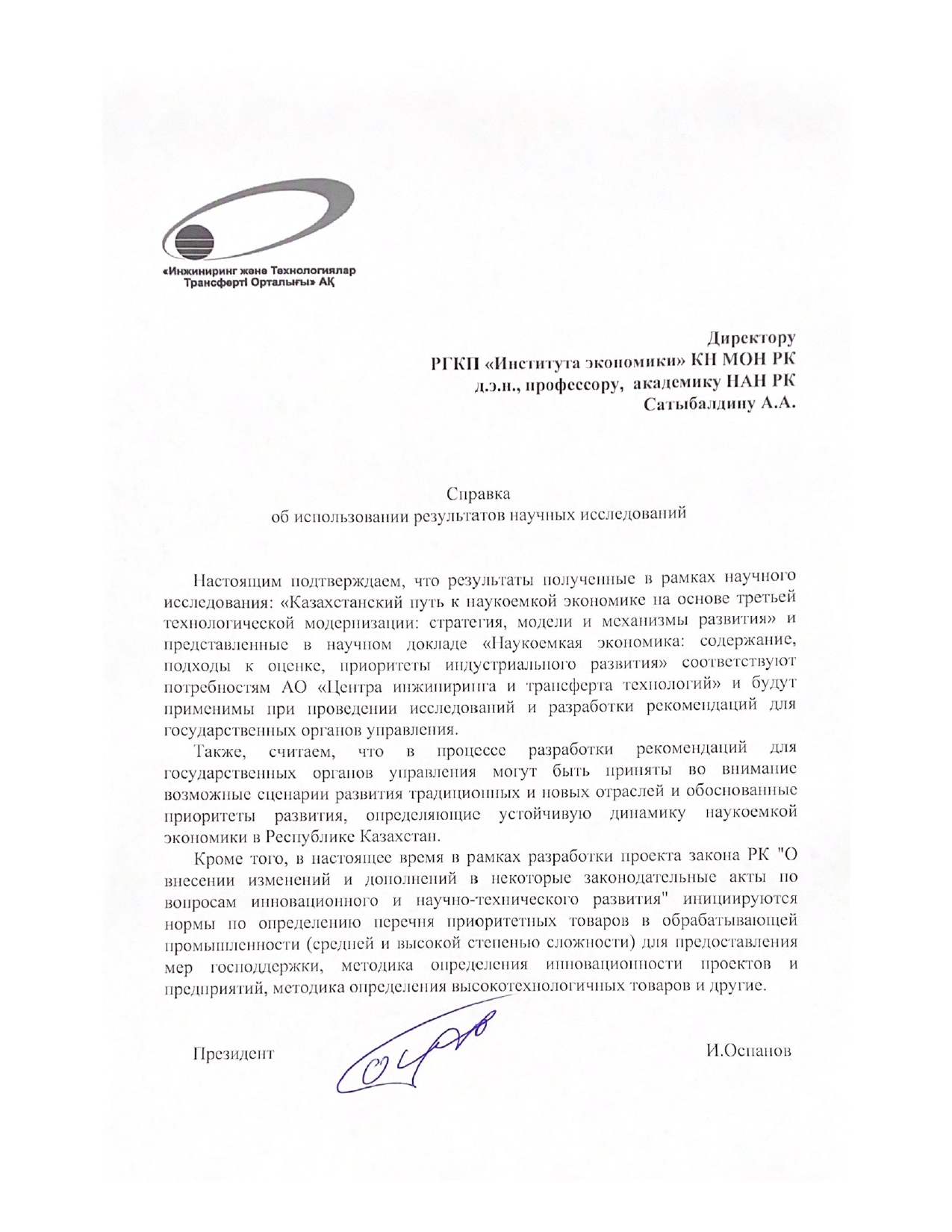Social innovations and quality of life of the population of Kazakhstan in the conditions of the information society
Leader of the Research Project Panzabekova A. Zh., PhD, Chief Scientist
The purpose of the study is to substantiate the priorities and mechanisms for ensuring new standards of quality of life for the population of Kazakhstan in the context of the development of a knowledge-intensive economy as the most important basis for the formation of an information society and the modernization of public consciousness.
The goal of the first stage (2018) is to study the theoretical and methodological foundations for justifying the social factors of innovative development that affect the quality of life of the population.
The result of the first stage of research (2018) is the justification of social factors of innovative development that affect the quality of life of the population, including:
– development of the theoretical foundations of social innovation as a key factor in improving the quality of life of the population;
– assessment of the impact of social innovations on the quality of life of the population;
– substantiation of the conceptual basis for the formation of new indicators of the quality of life of the population in the information society;
– development of a system of social standards that define a qualitatively new standard of living for the population in the information society;
– assessment of the system of the most important components of the quality of life of the population of Kazakhstan and their socio-economic parameters.
Scientific results are reflected in the following foreign rating publications database of Russian science citation index and SCOPUS:
1. Alibekova, G., Panzabekova, A., Satpayeva, Z., & Abilkayir, N. (2018). Sustainable development issues of Almaty as the largest metropolis in central Asia. Paper presented at the IOP Conference Series: Earth and Environmental Science, 177(1) doi:10.1088/1755-1315/177/1/012010 https://iopscience.iop.org/article/10.1088/1755-1315/177/1/012010/pdf
2. Панзабекова А.Ж. (в соавт.). Инновации как стержень капиталистического развития // Научный журнал НИУ ИТМО. Серия «Экономика и экологический менеджмент». – 2018. – № 1. — С.89-97. (РИНЦ, импакт-фактор 0,493) https://elibrary.ru/download/elibrary_32665031_74422128.pdf
3. Панзабекова А.Ж. (в соавт.). Оценка регулирующего воздействия на постсоветском пространстве: результаты, проблемы, перспективы //Управленческие науки. – 2018. — № 2. – С.84-93 (РИНЦ, импакт-фактор 1,083) https://elibrary.ru/download/elibrary_35271226_60748269.pdf
The goal of the second stage (2019) is to determine priorities for improving the quality of life of the population of Kazakhstan in the context of the formation of the information society and the modernization of public consciousness.
The result of the second stage of research (2019) is to assess the quality of life indicators of the population of Kazakhstan and develop priorities for their improvement in the conditions of formation of the information society and modernization of public consciousness, including:
– assessment of the level and quality of the socio-economic potential of the population of Kazakhstan;
– identification of the level of development of the leading spheres of life support and life activity of the population of Kazakhstan and their comparison with the developed countries of the world;
– justification of new indicators of the quality of life of the population in the conditions of innovative development and formation of the information society;
– justification of social priorities of the new quality of life of the population of Kazakhstan in the conditions of innovative economy.
Scientific results are reflected in the following foreign rating publications of the RSCI and SCOPUS databases:
1. Panzabekova, A., Satybaldin, A., Alibekova, G., & Abilkayir, N. (2019). Human capital for sustainable development: A comparative analysis of regions of the Republic of Kazakhstan. Paper presented at the IOP Conference Series: Earth and Environmental Science, 317(1) doi:10.1088/1755-1315/317/1/012013 https://iopscience.iop.org/article/10.1088/1755-1315/317/1/012013
2. Панзабекова А.Ж. Влияние социально‐культурных факторов на формирование моделей восприятия коррупции // Социальная интеграция и развитие этнокультур в евразийском пространстве: тематическое направление «Гражданское общество против коррупции»: сборник материалов всероссийской научно‐практической конференции. – Барнаул, 2019. – Т. 1, №8. – С. 158-169. https://elibrary.ru/download/elibrary_38201511_81114175.pdf
The aim at the third stage (2020) is to identify strategic directions for ensuring new standards of quality of life for the population of Kazakhstan in the context of the formation of an information society and modernization of public consciousness.
The main results of the third stage of research (2020):
– substantiation of institutional mechanisms for improving the quality of life of the population in the context of the formation of an information society and modernization of public consciousness;
– development and substantiation of socio-economic mechanisms for ensuring new standards of quality of life of the population and development of human potential as the most important condition for the modernization of public consciousness;
– substantiation of social resources of modernization development of the national economy and Kazakhstani society;
– development of a model of the quality of life of the population of Kazakhstan in the context of the formation of an information society and modernization of public consciousness;
– assessment of the digital component of the quality of life of the population of Kazakhstan in the context of the formation of an information society.
Implementations:
1. Reference on the use of research findings by the Economic research institute of Ministry of national economy of the Republic of Kazakhstan in developing recommendations for the social and labor spheres in terms of Industry 4.0 (Letter № 39-22/943 dated 10.10.2019 signed by the deputy Chairman of the Board B. Mukan) 
2. Reference on the use of the results of scientific research from CIIT.
